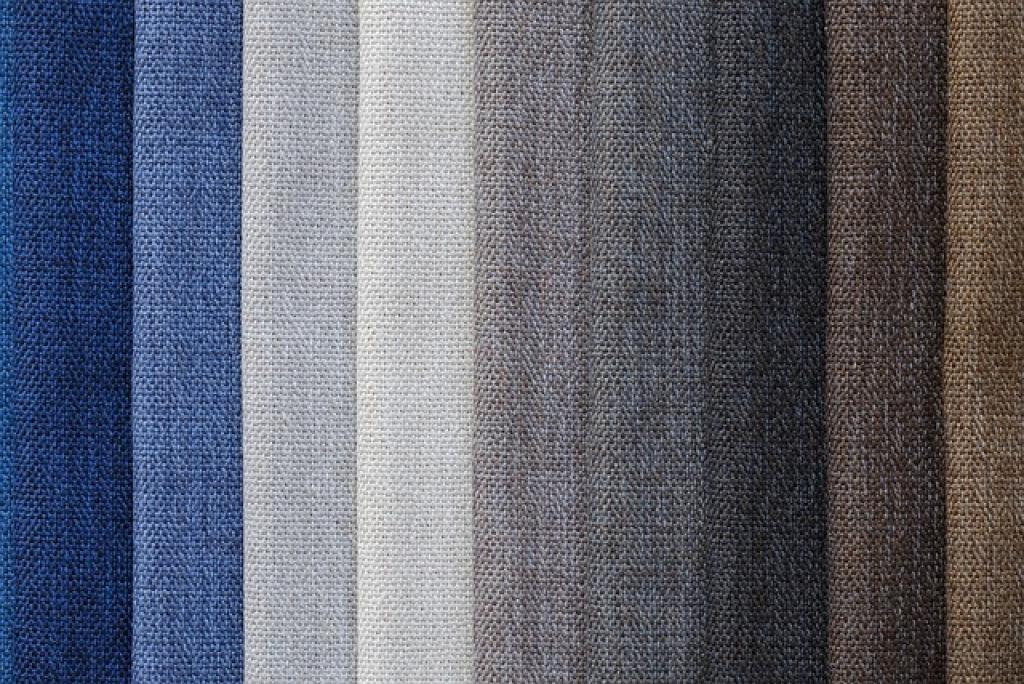Imagine slipping into something that not only feels good but also does good for the planet. That’s the promise of organic fabrics! As our awareness about environmental impact grows, more people are turning to eco-friendly options in every part of life, including clothing.
You might wonder, what makes organic fabrics so special? For starters, they’re crafted from natural fibers grown without harmful pesticides or synthetic fertilizers. This kinder approach doesn’t just protect the health of our planet, but also ensures that the materials caressing your skin are free from nasty chemicals.
Beyond personal and planetary health, choosing organic fabrics supports ethical farming practices and humane labor conditions. It’s a small choice that can make a big difference, enhancing the well-being of both workers and ecosystems around the world.
Let’s dive deeper into why organic fabrics could be your new favorite wardrobe staple and how they offer benefits much beyond their soft touch!
What Makes Organic Fabrics Different?
You might be wondering how organic fabrics stand out from the rest. The key difference lies in how they’re produced. Organic fabrics come from plants like cotton, linen, and hemp, grown without toxic chemicals or genetically modified seeds. This eco-friendly farming is a win-win for Mother Earth and all its inhabitants.
The Natural Nurturing Process
In the world of organic farming, natural pesticides and fertilizers take center stage, keeping the soil healthy and diverse. Biodiversity actually shines here, with beneficial insects and animals joining forces to maintain balanced ecosystems.
Also, when it comes to processing these beautiful fibers into fabrics, harsh chemicals are out. Clean production methods mean fewer pollutants released into air and water, making organic fabrics a breath of fresh air for our environment.
Skin-Friendly Fashion
Wearing organic materials isn’t just about feeling good morally; it’s about feeling great physically, too! Without chemical residues, these fabrics are less likely to irritate your skin, making them an excellent choice for everyone, especially those with sensitive skin.
As we learn more about the effects of synthetic materials, the choice becomes clearer. Organic is not just a label—it’s a lifestyle that offers comfort, style, and peace of mind.
Benefits of Choosing Organic Fabrics for Your Skin
Our skin is our largest organ, so it makes sense to dress it with care. Organic fabrics offer gentle, skin-loving benefits that go beyond what meets the eye.
One major perk is the absence of harsh chemicals. Conventional fabrics are often treated with dyes and finishes that can cause allergic reactions. Organic fabrics skip these additives, making them a safer bet for your skin.
A Breathable Barrier
Organic materials like cotton and linen are naturally breathable. They allow air to circulate, preventing sweat and bacteria buildup. This is especially great news for those hot summer days or intensive workouts when our skin needs all the help it can get to stay cool and comfortable.
By the same token, by switching to organic, you may reduce the risk of skin irritations or flare-ups. For individuals with eczema or sensitive skin, these fabrics can be a game-changer, offering soothing relief with their soft touch.
Eco-Conscious Comfort
Besides being kind to your skin, choosing organic supports eco-conscious practices. It’s comforting to know that your clothing choices reflect a commitment to a healthier planet, too. Embrace the softness and purity of organic fabrics and enjoy the harmony of style, sustainability, and skin health.
Environmental Impact of Organic Fabrics
When we talk about the environment, every little decision counts—right down to the clothes we wear. Organic fabrics are making waves in the fashion industry because they respect Mother Earth.
Picture this: traditional cotton farming uses tons of pesticides and synthetic fertilizers, which can harm both our planet and local wildlife. In contrast, organic farming upholds eco-friendly practices, keeping harmful chemicals at bay and encouraging biodiversity.
Water conservation is another superstar feature of organic fabrics. Conventional farming can be thirsty work, often draining precious resources. Organic methods typically use less water, a major win for sustainability.
Then there’s the energy factor. By relying on natural processes and reducing chemical dependence, organic production usually requires less energy. This reduces the carbon footprint, paving the way for a greener future.
So, when you slip into an organic cotton tee or cozy up in a hemp blanket, you’re wearing a part of the solution—not the pollution. Small choices like this help our planet thrive one comfy garment at a time.

Are Organic Fabrics Durable?
So, let’s talk durability because, honestly, we all want our favorite clothes to last. Organic fabrics, despite their gentle origin, are surprisingly robust.
Take organic cotton—thanks to its natural growth process, it can be just as strong as conventional cotton. That’s a win for your wardrobe as it endures those countless trips to the laundry.
Bamboo fabric is another impressive contender. It’s known for its strength and longevity, maintaining its quality after multiple washes. Plus, it often gets softer over time, which is a delightful little bonus.
Hemp is perhaps the powerhouse of durability in the organic fabric world. Its fibers are incredibly strong, holding up well against wear and tear. Choose hemp when you want clothing that really stands the test of time.
While no fabric is indestructible, with a little love and care, your organic garments can serve you well for years. Investing in these durable choices isn’t just kind to the planet but also to your wallet.
How to Identify Genuine Organic Fabrics
Navigating the jungle of fabric labels can be tricky, especially when you’re on the hunt for genuine organic materials. Fear not, because I’ve got some pointers to keep you savvy on your shopping trips.
First off, look for certification labels. Standards like GOTS (Global Organic Textile Standard) and OEKO-TEX are your best friends here. These labels ensure that the fabric meets strict environmental and social criteria.
Check the Labels
Reading the fine print is crucial. True organic fabrics will be clearly labeled, leaving no room for ambiguity. If it seems vague or too good to be true, it might be worth a second thought.
Don’t hesitate to ask questions. Engage with the brand or shop staff about their products. Genuine sellers should be more than happy to provide detailed information about their fabric sourcing.
Lastly, trust your senses. Authentic organic fabrics typically have a natural feel and look. They won’t have the chemically treated sheen or smell that non-organic materials often do.
With these tips, you’ll be better equipped to spot genuine organic fabrics, ensuring your choices align with your values and lifestyle. Happy ethical shopping!
Myths Vs. Facts: Organic Fabrics Unveiled
It’s easy to get swept up in the buzz around organic fabrics, but not everything you hear is true. Let’s bust some myths and highlight the facts.
Myth: Organic Fabrics Are Always More Expensive
Not necessarily! While some organic textiles have a higher price tag, others can be quite affordable. The cost often depends on the brand, production method, and material used.
Fact: Organic Fabrics Are Better for Sensitive Skin
This one’s true. Organic fabrics, free from harsh chemicals and toxins, tend to be gentler on the skin. They’re a great option for those with allergies or irritations.
Myth: All Cotton Is Organic
Simply put, no. Not all cotton is grown or processed organically. Conventional cotton often involves pesticides and synthetic fertilizers.
Fact: Organic Fabrics Are Environmentally Friendly
Absolutely! These materials are produced with eco-conscious practices, reducing environmental harm and promoting biodiversity.
Remember, staying informed helps make choices that are both sustainable and suitable for your lifestyle. Let’s keep choosing wisely!
Caring for Your Organic Fabrics
Once you’ve invested in organic fabrics, it’s important to care for them properly to ensure they last. Here are some simple tips to keep your textiles looking fresh and fabulous.
Gentle is Key
Wash your organic fabrics with a gentle, eco-friendly detergent. Harsh chemicals can undermine their natural benefits and reduce longevity. Also, opt for cold water washes to maintain the fabric quality.
Avoid Over-Drying
It’s tempting to toss everything in the dryer, but with organic fabrics, air drying is your best friend. This not only preserves fabric integrity but also keeps those electricity bills down!
Store Smartly
When it comes to storage, keep your organic clothes in a cool, dry place. Direct sunlight can cause fading, while moisture might lead to mold—or worse, stubborn smells.
Handle with Care
Finally, if an accident happens and stains appear, treat them swiftly with a natural stain remover. Dab—don’t rub—to avoid spreading the stain further.
These little acts of care can extend the life of your organic fabrics, ensuring they remain a staple in your wardrobe for years to come.
The Bottom Line: Why Organic Fabrics Are Worth the Investment
In a world increasingly aware of its environmental impact, choosing organic fabrics stands out as an impactful decision. These fabrics not only support sustainable practices but also ensure that we’re wearing materials free from harmful chemicals.
Additionally, organic textiles tend to be softer and more comfortable. It’s like wrapping yourself in a warm hug every time you put them on. The natural fibers breathe better, reducing skin irritations and allergies that synthetic materials can sometimes provoke.
While it may seem like organic fabrics come with a heftier price tag, they often prove to be more durable. With a little extra care, they last longer, saving you money over time. Think of it as an investment in quality rather than mere expense.
Beyond personal benefits, choosing organic fabrics also supports farmers practicing eco-friendly agriculture. This promotes better working conditions and helps protect our planet.
As consumers, every purchase is a vote for the kind of world we want to live in. By choosing organic fabrics, you’re supporting a healthier planet and better living conditions for those who produce our clothes.
Ultimately, it’s about making thoughtful choices. When you weigh the benefits—from comfort to environmental impact—the reasons to switch to organic fabrics are compelling and clear. Aren’t our bodies and our planet worth it? Absolutely.

